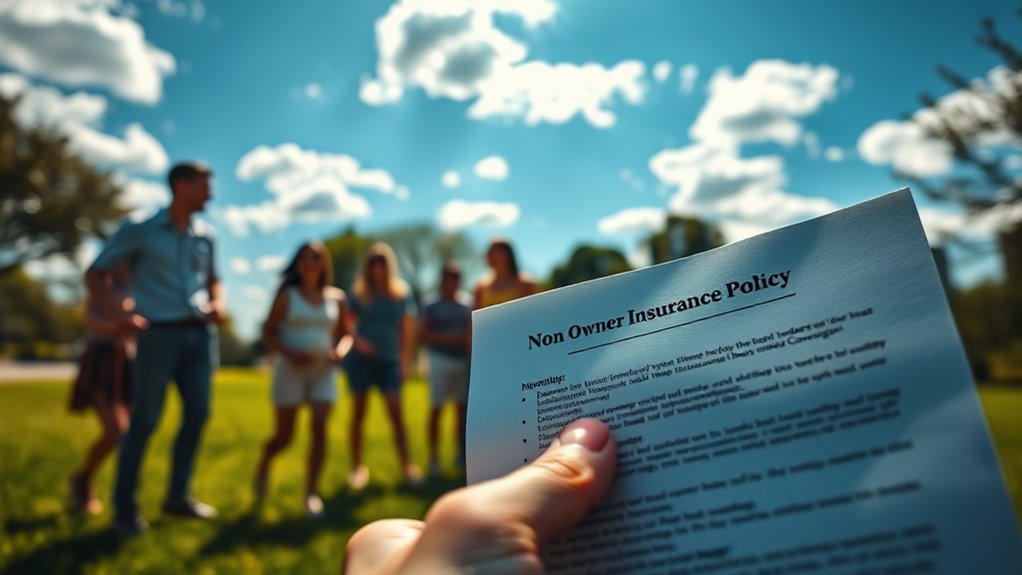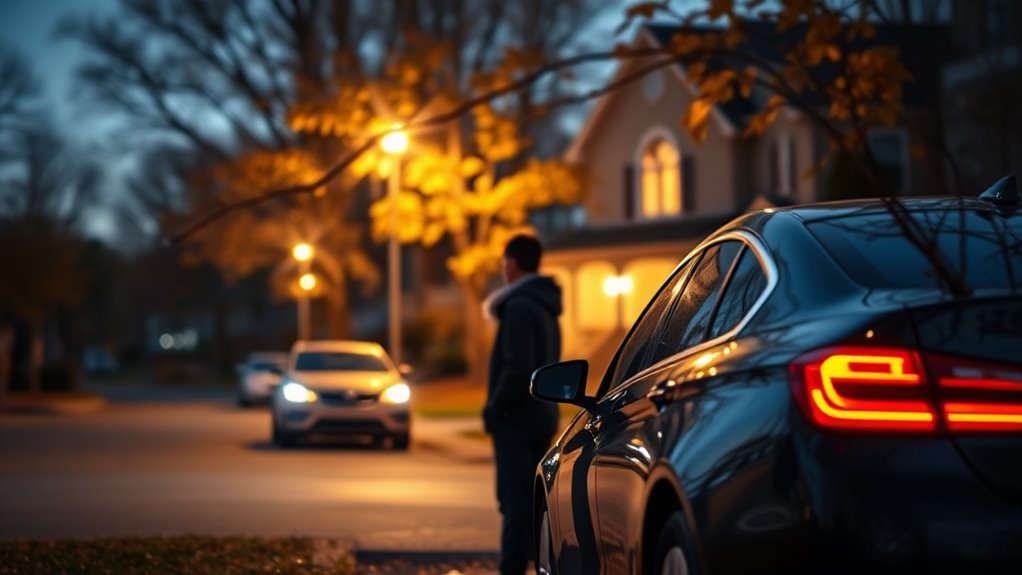When it comes to non-owner insurance, understanding your liability coverage is vital. You need to guarantee your policy meets adequate limits to safeguard against financial risks. It's also important to maintain continuous coverage to prevent gaps that could raise your premiums. As your driving habits change, your coverage should too. Let's explore these essential tips to guarantee you're fully protected and compliant with state regulations.
Key Takeaways
- Ensure your non-owner insurance policy includes adequate liability limits, ideally $100,000 per person and $300,000 per accident, for better financial protection.
- Maintain continuous coverage with non-owner insurance to avoid gaps that could lead to increased premiums and legal issues.
- Regularly review and adjust your coverage based on changes in your vehicle usage or personal circumstances to ensure adequate protection.
- Consider combining non-owner insurance with credit card rental car benefits for comprehensive coverage while renting vehicles.
- Monitor your policy terms and state regulations to remain compliant and informed about your coverage options and exclusions.
Understand Your Liability Coverage Limits

Understanding your liability coverage limits is essential for protecting your financial well-being. Liability coverage limits typically include three numbers: bodily injury per person, bodily injury per accident, and property damage.
While states mandate minimum coverage, these limits often fall short in serious accidents, exposing your assets to risk. It's advisable to exceed these minimums for better protection. For personal auto liability, recommended limits are $100,000 per person and $300,000 per accident, especially if you use your vehicle for business purposes. Non-owned auto liability coverage can help protect your business when employees use personal vehicles for work. Additionally, having adequate coverage limits can prevent significant out-of-pocket expenses in the event of a claim. Higher policy limits can enhance your financial security but may also raise your premiums.
Maintain Continuous Coverage for Financial Security
Maintaining continuous coverage with non-owner insurance is essential for safeguarding your financial security, especially if you frequently drive vehicles you don't own. This type of insurance offers cost-effective liability coverage, preventing gaps that could lead to increased rates.
It fulfills legal requirements, helping you comply with state regulations and ensuring you can reinstate your license if needed. Additionally, non-owner insurance shields you from financial risks associated with accidents, acting as secondary coverage when the owner's policy falls short.
To keep your coverage uninterrupted, research providers, monitor policy renewals, and adjust your coverage as your needs change. By doing so, you'll secure peace of mind and financial protection on the road.
Consider Additional Protection for Rental Vehicles
When renting a vehicle, it's important to take into account additional protection beyond the basic liability coverage offered by rental companies.
While these policies meet state minimums, they often fall short of providing adequate protection in the event of an accident. Consider purchasing a Liability Insurance Supplement (LIS) for enhanced coverage.
Additionally, check your credit card benefits, as some offer primary insurance for rentals, which can save you costs.
Remember, non-owner insurance provides liability protection but doesn't cover damage to the rental vehicle itself.
To guarantee thorough protection, combine non-owner policies with credit card coverage or rental company waivers.
Assess your options carefully to minimize financial risk during your rental experience.
Conclusion
In conclusion, think of your non-owner insurance liability coverage as a sturdy umbrella on a rainy day. Without it, you risk getting soaked by unexpected financial storms. By understanding your coverage limits, maintaining continuous protection, and considering additional options for rental vehicles, you can keep yourself dry and secure. Just like a well-prepared traveler, staying proactive about your insurance guarantees you're ready for whatever the road throws your way. Stay covered, stay safe.



